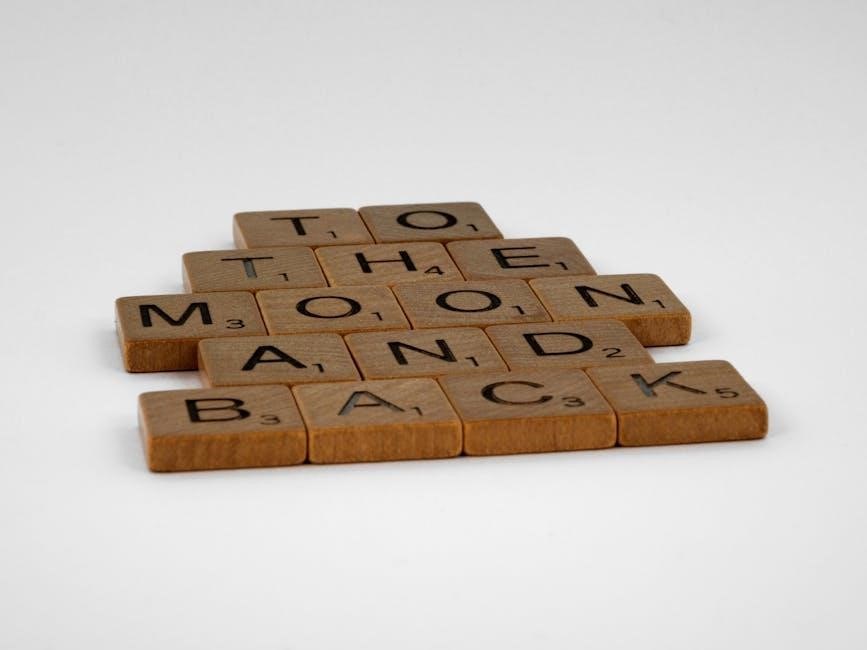Amanda Montell’s Wordslut offers a bold exploration of language’s role in gender inequality, tracing its oppressive history and empowering readers to reclaim words for feminism․
Overview of the Book’s Premise
Wordslut: A Feminist Guide to Taking Back the English Language by Amanda Montell explores how language has historically been weaponized to marginalize women and reinforce patriarchal norms․ Montell, a linguist and author, argues that reclaiming and redefining words is a powerful act of resistance․ The book examines the intersection of language, gender, and power, offering a fresh perspective on how women can reclaim their voices and challenge systemic inequality through linguistic empowerment․

The Importance of Language in Feminism

Language plays a pivotal role in shaping societal perceptions of gender, reinforcing inequality and perpetuating stereotypes․ Feminism recognizes the power of words to both oppress and empower, emphasizing how language can marginalize women by embedding patriarchal norms․ Montell argues that reclaiming and redefining language is essential to dismantling systemic sexism, enabling women to assert their identities and challenge gendered narratives․ This linguistic transformation is central to feminism’s broader goals of equality and representation․

Historical Context of Gendered Language
Gendered language has deep historical roots, often reflecting patriarchal norms that marginalized women․ Words and expressions have historically been used to reinforce gender roles and oppression, shaping societal inequalities that persist today․
How Language Has Been Used to Marginalize Women
Language has historically been a tool of oppression, with terms often diminishing women’s agency and reinforcing stereotypes․ Words like “bitch” and “hysterical” have been weaponized to demean and silence women․ Additionally, the absence of female-centered language in dictionaries and discourse has perpetuated gender inequality․ Such linguistic biases have contributed to systemic marginalization, limiting women’s representation in power structures and perpetuating patriarchal norms․ Montell highlights how these linguistic practices have been deeply ingrained in culture, shaping societal attitudes toward gender․
Specific Examples of Oppressive Language
Wordslut examines how language has perpetuated gender-based oppression․ Terms like “bitch” and “hysterical” have been used to demean women, while phrases like “rule of thumb” hint at violent histories․ Slut-shaming terminology and gendered insults reinforce notions of female inferiority․ Such language often invalidates women’s experiences, perpetuating systemic inequality․ Montell’s analysis reveals how these words embed harmful stereotypes, limiting women’s voices and agency in society․ These examples underscore the urgent need for linguistic reclamation and feminist resistance․

Modern Manifestations of Sexist Language
Modern sexist language evolves, manifesting in phrases like “mansplaining” and “toxic masculinity․” Social media amplifies these terms, revealing persistent gender biases despite increased awareness․
Contemporary Sexist Terms and Phrases
Modern language still perpetuates sexism through terms like “mansplaining” and “toxic masculinity․” These phrases reflect systemic gender biases, often used to demean or marginalize women․ Social media amplifies such language, spreading harmful stereotypes․ For instance, terms like “bitch” or “slut” are frequently weaponized to degrade women․ These expressions reinforce unequal power dynamics and highlight the need for awareness and linguistic reclamation․ Addressing these terms is crucial for fostering inclusivity and challenging ingrained gendered norms in society today․
The Role of Microaggressions in Language
Microaggressions, subtle yet pervasive language practices, perpetuate gendered biases and reinforce systemic inequality․ These often unintentional expressions, such as backhanded compliments or gendered put-downs, can undermine women’s authority and confidence․ For instance, phrases like “Don’t be too ambitious” or “You’re so emotional” subtly invalidate women’s experiences․ Addressing these linguistic microaggressions is essential for fostering inclusive communication and challenging deeply ingrained gender stereotypes․ Montell emphasizes the need to recognize and dismantle these subtle injustices to create a more equitable linguistic landscape․

Reclaiming Language as a Feminist Act
Reclaiming language as a feminist act involves redefining and repurposing words to empower women and challenge gendered norms, fostering equality and inclusivity in communication․
Examples of Reclaimed Words and Their Impact
Words like “bitch” and “slut” have been reclaimed, transforming from derogatory terms to symbols of empowerment․ This reclamation challenges their historical use in marginalizing women, fostering solidarity and resilience․ By embracing these words, feminists subvert their oppressive origins, creating spaces for dialogue and resistance․ The impact is profound, reshaping cultural narratives and asserting women’s agency over their own identities and language․
The Role of Social Media in Language Reclamation
Social media has become a powerful tool for reclaiming and redefining language․ Platforms like Twitter and Instagram amplify feminist discourse, allowing words like “slut” and “bitch” to be repurposed as symbols of empowerment․ Hashtags such as #Wordslut foster community and visibility, enabling marginalized voices to challenge patriarchal norms․ This digital space democratizes language, creating a cultural shift where women reclaim agency over their identities and narratives, fostering solidarity and resistance on a global scale․

Legal and Political Implications of Gendered Language
Language shapes laws and policies, perpetuating inequality and discrimination․ Gendered terms often exclude marginalized groups, reinforcing systemic bias․ This impacts legal protections and social justice initiatives significantly․
How Language Shapes Laws and Policies
Language profoundly influences legal frameworks, reflecting societal values and power dynamics․ Gendered terms often embed bias, shaping policies that exclude or marginalize certain groups․ For instance, laws historically crafted with masculine pronouns have perpetuated inequality, while gender-neutral language promotes inclusivity․ Montell highlights how language can both enforce and challenge systemic discrimination, emphasizing its role in creating or dismantling barriers in legal and political systems․ This linguistic impact underscores the need for mindful, equitable language in governance and lawmaking․
Challenges in Addressing Sexist Language Systemically
Addressing sexist language systemically faces significant challenges, including institutional resistance and deeply ingrained cultural norms․ Language is often embedded in legal and social systems, making it difficult to dismantle without broader structural changes․ Additionally, the subtlety of microaggressions and implicit biases can make them hard to identify and challenge․ Resistance from those who view such efforts as threats to tradition or free speech further complicates progress․ Systemic change requires sustained advocacy and education to shift societal attitudes and practices․

Intersectionality in Language Reclamation
Intersectionality highlights how race, class, and other identities intersect with gender, creating unique challenges for marginalized groups in reclaiming their linguistic power and representation․
How Race, Class, and Other Identities Intersect with Language
Language is deeply intertwined with social hierarchies, reflecting and reinforcing inequalities․ Race, class, and other identities shape linguistic experiences, with marginalized groups often facing unique challenges․ For instance, racial slurs and classist terms perpetuate systemic oppression, while gendered language disproportionately affects women․ Intersectionality reveals how these identities intersect, creating compounded marginalization․ Black women, for example, navigate both racism and sexism, experiencing language that dehumanizes and erases their voices․ Addressing these intersections is crucial for equitable language reclamation and empowerment․
Addressing the Unique Challenges Faced by Diverse Groups
Marginalized communities face distinct linguistic barriers, with race, class, and identity intersecting to create layered oppression․ Women of color, for instance, endure intersectional discrimination, while LGBTQ+ individuals confront erasure through gendered language․ Socioeconomic disparities further complicate access to linguistic empowerment․ Addressing these challenges requires inclusive solutions, such as redefining terms, promoting diverse storytelling, and challenging stereotypes․ By amplifying marginalized voices, we can foster equity and reclaim language as a tool for collective liberation and empowerment․

Amanda Montell’s Contributions to Feminist Linguistics
Amanda Montell, a linguist and author, critically examines gendered language in Wordslut, empowering feminist discourse and challenging linguistic oppression through her insightful and impactful work․
Her Work as an Author and Linguist
Amanda Montell, a renowned linguist and author, has made significant contributions to feminist linguistics through her critically acclaimed book Wordslut․ Her work delves into the intersection of language and gender, offering a nuanced analysis of how language has historically marginalized women․ Montell’s writing is both accessible and scholarly, blending linguistic theory with cultural critique to empower readers․ Beyond Wordslut, she has written about fanaticism in Cultish, further showcasing her ability to explore complex societal issues through language․ Her interdisciplinary approach has made her a prominent voice in contemporary feminist discourse․
The Impact of “Wordslut” on Contemporary Discourse
Wordslut has sparked vital conversations about gendered language, empowering readers to challenge linguistic inequality․ Montell’s work has inspired a broader cultural shift, encouraging individuals to rethink how language shapes identity and power dynamics․ By blending humor and scholarship, she has made feminist linguistics accessible, fostering a movement to reclaim and redefine words historically used to marginalize women․ Her book has become a catalyst for contemporary discourse on language, equality, and social change․
Wordslut challenges readers to rethink language’s role in inequality, inspiring future efforts to create a more inclusive linguistic landscape and continue reclaiming words for feminist empowerment․
Summarizing the Key Points of the Book
Wordslut explores how language has historically marginalized women, highlighting the power of reclaiming derogatory terms like “bitch” and “spinster․” Montell examines how these words evolved from neutral descriptions to gendered insults, reflecting societal biases․ She emphasizes the importance of understanding language’s cultural and historical context, advocating for mindful communication․ By challenging sexist linguistic norms, Montell encourages readers to reclaim and redefine words, fostering equality and inclusivity in everyday discourse․
The book underscores the transformative potential of language reclamation, particularly through social media and feminist movements․ Montell’s analysis not only critiques oppressive language but also inspires readers to actively reshape linguistic norms, promoting a more equitable future for all genders․
The Future of Feminist Linguistics and Language Reclamation
The future of feminist linguistics lies in challenging patriarchal norms and amplifying marginalized voices; Social media will continue to play a pivotal role in accelerating language change, enabling rapid reclamation and dissemination of empowering terms․ Education and awareness campaigns will further normalize inclusive language, fostering cultural shifts․ By embracing intersectionality, feminist linguistics can address diverse experiences, ensuring no group is left behind in the fight for linguistic equality․
Collaborative efforts between activists, scholars, and policymakers will be crucial in creating systemic change․ As language evolves, so too will its potential to dismantle oppressive structures, paving the way for a more equitable future․